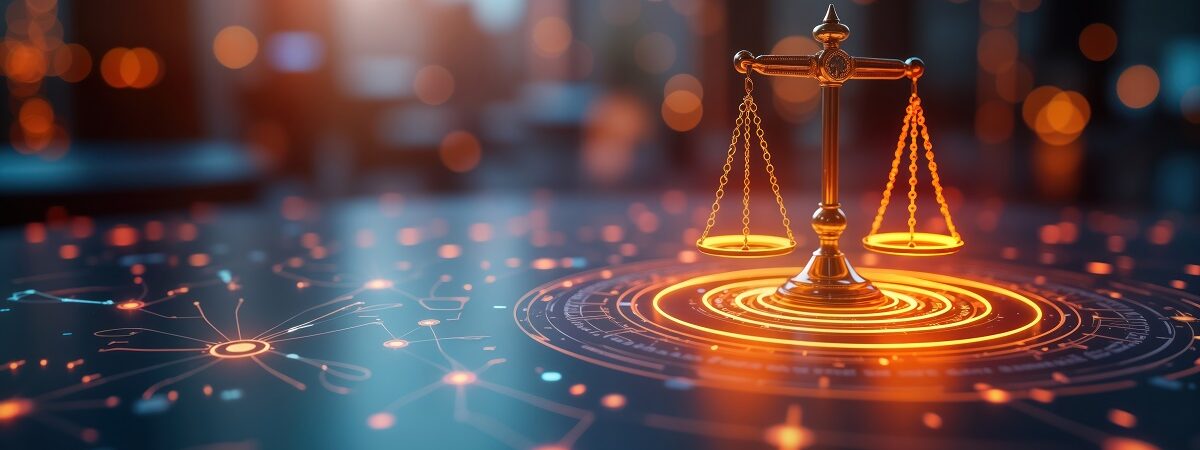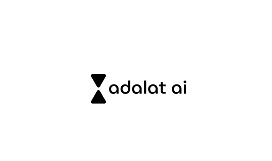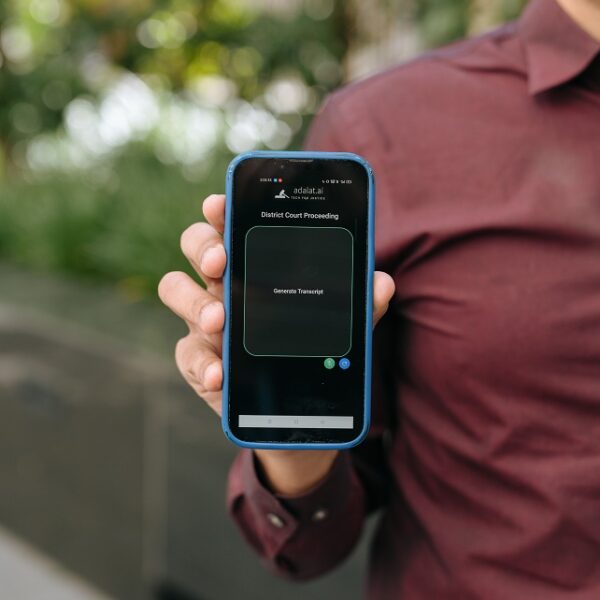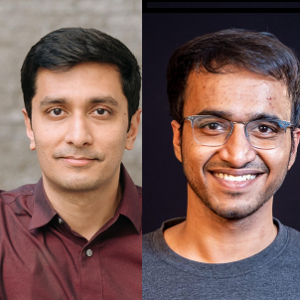
Adalat AI
Model & Strategy
Adalat AI is a non-profit legal tech organization that reduces judicial backlogs, which leave millions — primarily low-income and marginalized individuals — languishing in prison without convictions. By equipping judicial workers with AI-powered tools, Adalat AI is improving efficiency and advancing equity in the justice system, beginning in India and expanding globally. Adalat AI is integrated into over 3,000 courts across eight states in India and will reach half of India’s courts by the end of 2025.
The Problem
India’s judicial system is facing a crisis with over 50 million cases backlogged, which would take more than 300 years to resolve at the current pace. A major contributing factor is the shortage of skilled stenographers, forcing many judges to transcribe proceedings by hand. As a result, 60% of cases are delayed at stenography-intensive stages like the recording of evidence. The issue is compounded by India’s complex language diversity, with over 140 dialects and the requirement for translation into formal English for court proceedings. This burden disproportionately affects vulnerable groups, who make up 35% of the population but 66% of criminal cases awaiting trial. Many are imprisoned without conviction, unable to afford bail, and trapped in a slow system. Today, over 400,000 people in India are held in jail without trial, facing extended pre-trial detention, loss of income, and deep social stigmatization.
The Solution
Adalat AI is solving the issue of judicial delays through cutting-edge AI solutions tailored to the specific needs of courtroom personnel. Rather than replacing human workers, Adalat enhances the efficiency of stenographers, judges, and court staff by providing AI-powered tools, such as real-time speech-to-text transcription, automated court workflows, and a mobile app for dictation. These innovative tools streamline processes, reduce bottlenecks, and expedite case resolutions. By integrating AI into courtroom operations, Adalat addresses core inefficiencies, ensuring that justice is delivered in a timely and equitable manner. The platform’s AI models handle complex legal jargon and multiple languages, including Indian vernacular languages, which enables courts to digitize and streamline previously manual tasks.
Since launching in 2024, Adalat has already reached 15% of India’s courtrooms and is on track to cover 50% of the country’s courts by the end of 2025. Their technology is operational in states like Delhi, Karnataka, and Orissa, reducing case timelines by 30 to 50% and alleviating pressure on overburdened courts. By 2026, Adalat plans to deploy in over 10,000 courts and all courts in India by 2027. With plans to expand to over 20,000 courts in 25 states, Adalat is also positioning for global expansion, particularly to other common law systems in the Global South, with interest from countries in Africa and Southeast Asia. By FY2027, Adalat aims to operate in five additional countries, ensuring timely access to justice for millions more.



Utkarsh has worked as a lawyer in Indian courts since 2012, litigating notable cases like India’s same-sex marriage case at the Supreme Court. Previously, Utkarsh worked at the World Bank and Boston Consulting Group. He holds a BA/LLB from the University of Delhi, an LLM from Harvard Law School as an Inlaks scholar, and an MPA/ID from Harvard Kennedy School as a John M. Olin fellow. His award-winning Kennedy School thesis laid the groundwork for his PhD at Oxford, research visit at MIT, and establishment of Adalat AI.
Arghya is a machine learning engineer with expertise in natural language processing (NLP). He holds a Bachelor’s in Computer Science and a Master’s in AI/ML from IIIT Hyderabad. As the founding engineer at Enterpret, he led AI model development and product growth. He later managed data-sensitive systems at Equal, focusing on biometric data compliance. Inspired by his background as the son of a social worker, Arghya joined Adalat to leverage his AI expertise to address inequities faced by vulnerable communities in India.

Impact
Launched in India in January 2024, Adalat’s platform has been deployed in 3,000 courts across eight states.
Adalat reached 15% of India’s courts in 2024 and is on track to be implemented in 50% of courts by the end of 2025.
Proven and significant time savings: Early studies show that their technology can reduce case timelines by 30 to 50%.

